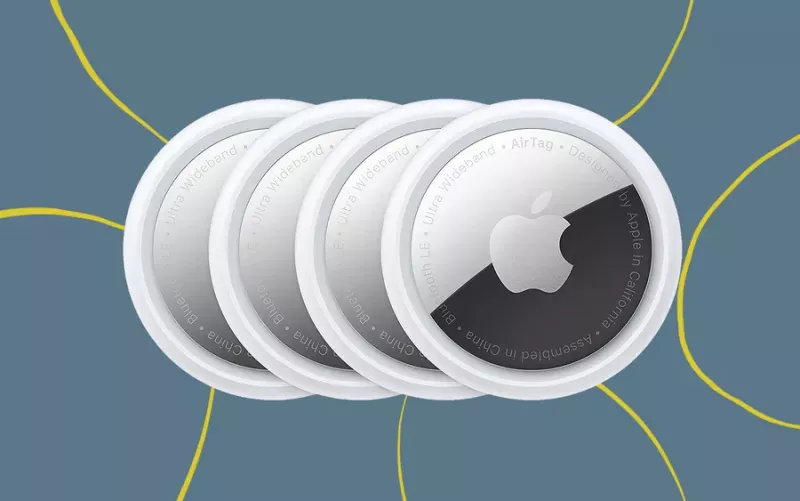Apple's AirTag is the easy little tool you need during these chaotic travel times - and it's on sale now.
My family's summer vacation at the Mandarin Oriental, nestled on the secret Caribbean island of Canouan, was very poetic. Return trip? Not really. But thanks to a $28 product, my lost luggage management story has thankfully been a lot easier than it could have been, and you're about to read why.
Our return trip to Los Angeles included three planes (with a friend in the chair coughing incessantly), sweating behind an N95 mask in close to 100% humidity, and a delayed flight - more than 18 hours transit with two young children. When our last checked bag doesn't come off the conveyor belt, I'll be ready to save it even if it's full of gold bars; I just finished.
Read Also:UFC champion Francis Ngannou: Gives Account Of How He Was Smuggled Into Europe
Fortunately, I didn't have to spend a single unnecessary late-night moment wondering if or when it might emerge. Rather, I pulled up the Find My app on my iPhone and there was my bag: 2,342 miles away in Miami, where we'd last connected. I was able to locate my bag so easily because I had outfitted each piece of our checked luggage with an Apple AirTag. These personal GPS devices are tiny and almost weightless — about the size of a small watch face. They set up effortlessly: Just hold it next to your iPhone or iPad to link to your account.
I already had these devices on all of my critical material things: my keys, my kids' backpacks, and my cat's collar, for example. But with the mess that is commercial air travel these days, I bought an additional 4-pack so I could add one to each of my family member's checked bags this summer.
Typically, these tags are about $29 each, or close to $100 for a four-pack, which is what I paid. Right now, the set of four tags is on sale for 10 percent off, bringing its price down to $89, which is an excellent bargain for technology that would have seemed like sci-fi fantasy not so long ago. (We previously owned devices called Tile, but Apple's version is far superior and works well with all of our existing tech.)
To locate a missing device, you can play a sound on the built-in speaker; this works well for items likely to be in the house, like keys. But for my luggage, I pulled up the Find My app and saw not only that it was in Miami, but precisely where it was in the terminal. (All communication with the Find My network is anonymous and encrypted for privacy, and the data is never stored.)
After getting a bit of sleep back at home, I called American Airlines to officially register a claim for my delayed bag. Using my bag tag ID, the agent tracked my bag to LAX, where it had eventually arrived on a later flight from Miami. Of course, I already knew its updated whereabouts thanks to the AirTag.
For how frustrated I was about the delay (it took days for the bag to finally arrive back home), I was reassured by knowing exactly where the bag was at all times — and I was prepared to go to the warehouse in person to retrieve it if need be. Eventually, it showed up at our house — 99 hours after we did (but who's counting?) and with only hours to spare before we were leaving town again.
Did the AirTag magically make my delayed luggage reappear? No. But it definitely informed my efforts to locate it in a meaningful way, and it reassured me that I could eventually reunite with my MIA luggage. And I did.
All of this intel is valuable at any cost. But at $28 a pop for an Apple AirTag right now, there's no bigger bargain when it comes to the chaotic, expensive world of air travel.




